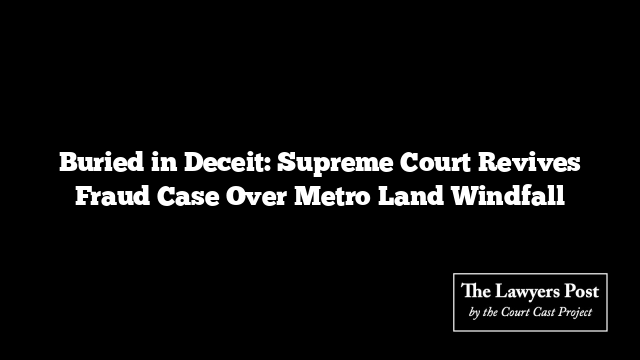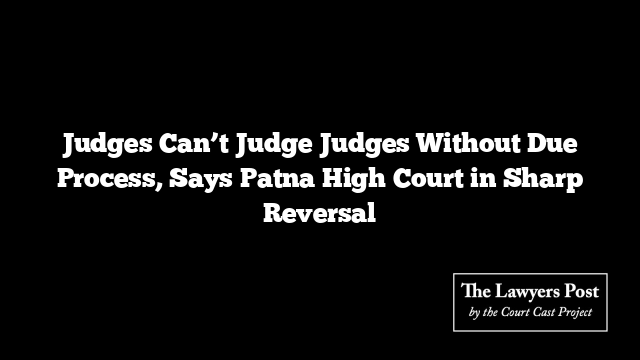In a sharp rebuke to attempts at inheritance sleight-of-hand, the Supreme Court has breathed life back into a criminal case against two men accused of cheating their female relatives out of ₹33 crore in land acquisition compensation. The disputed bounty? Land acquired by the Bengaluru Metro Rail Corporation Limited (BMRCL), which, according to the complainant, was quietly claimed by her brothers and nephews—leaving her and her four sisters entirely in the shadows.
The top court found enough smoke to justify a full trial, stating the allegations pointed to a possible conspiracy involving forged documents: a family tree that magically erased all daughters from the lineage and a partition deed that conveniently divvied up the compensation among the male heirs alone.
At the center of this legal storm is one of the daughters of the late KG Yellappa Reddy. She alleges that in 2011, her male relatives concocted a fake family tree that showed Reddy fathered only sons. With this paper trail, and a partition deed dated back to 2005, they laid claim to the entire compensation for the land acquired by BMRCL. By the time she discovered the scheme in 2017, over ₹27 crore had already flowed into their accounts.
When she confronted them, things took an ugly turn. Abuse. Threats. And then, police complaints. Two FIRs later, the City Crime Branch filed charge sheets, and the trial court initiated criminal proceedings for cheating, forgery, and conspiracy.
But in 2021, two of the accused—sons of her elder brother—approached the Karnataka High Court to quash the case. The High Court obliged, reasoning that the partition deed had Reddy’s thumbprint and therefore couldn’t be called a forgery.
The Supreme Court, however, saw things differently. A Bench of Justices Vikram Nath and PB Varale called out the High Court’s reliance on the sub-registrar’s unverified statement, emphasizing that such testimony hadn’t undergone cross-examination.
“It would be unwise to rely on unverified testimony of a Sub-Registrar to ascertain the genuineness of Partition deed,” the Court noted.
The Bench further ruled that omitting the daughters from the family tree wasn’t some clerical accident—it was central to a scheme aimed at diverting money owed to the entire family. The Court found that there was enough meat on the bones to warrant a full-fledged criminal trial.
As for the argument that the case should be quashed because a civil dispute over the same land was still pending? The Supreme Court wasn’t convinced. It reiterated a key principle: just because a matter is being litigated in civil court doesn’t mean criminal charges vanish if the ingredients of an offence are present.
The High Court’s November 2023 decision was thus overturned, and the trial court was directed to pick up the criminal case where it left off.
The saga now returns to the trial court, where truth and forgery will finally face off.




